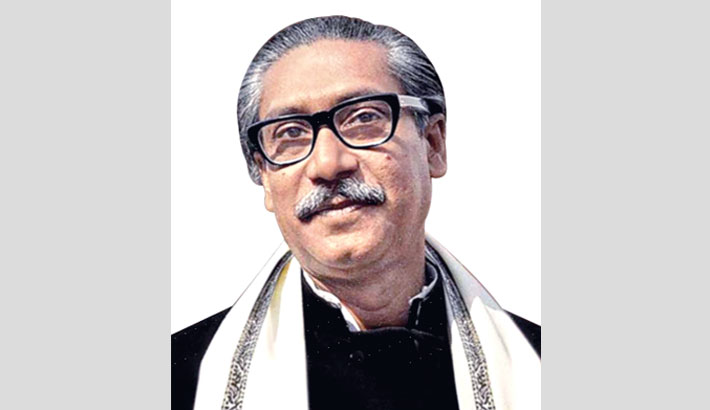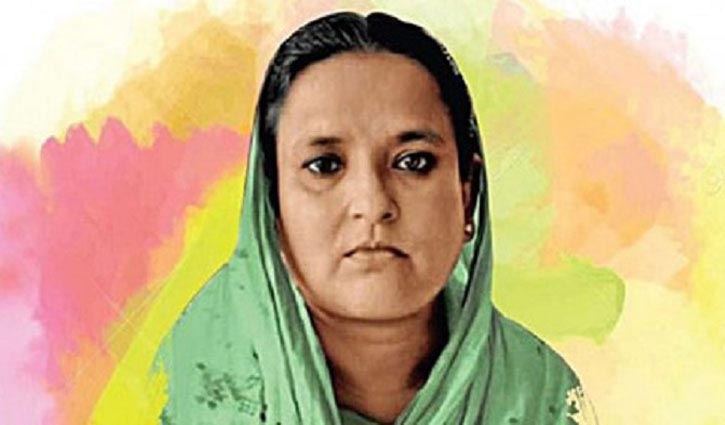The nation is observing National Mourning Day today, commemorating the 47th anniversary of the martyrdom of Father of the Nation Bangabandhu Sheikh Mujibur Rahman.
At the fateful dawn of August 15 in 1975, a group of disgruntled army officers assassinated country’s undaunted leader Bangabandhu Sheikh Mujibur Rahman along with most of his family members and toppled his three-and-half-year-old government.Bangabandhu’s wife Sheikh Fazilatunnesa Mujib, sons Sheikh Kamal, Sheikh Jamal and Sheikh Russel, daughters-in-law Sultana Kamal and Rosy Jamal, brother Sheikh Naser, peasant leader Abdur Rab Serniabat, youth leader Sheikh Fazlul Haq Moni and his wife Arzu Moni, Baby Serniabat, Sukanta Babu, Arif and Abdul Nayeem Khan Rintu were also killed along with Bangabandhu. Bangabandhu’s two daughters – incumbent Prime Minister Sheikh Hasina and Sheikh Rehana – survived the carnage as they were in Germany at that time.
The Bangalee nation witnessed the history’s most heinous incident this day in 1975 at a time when Bangabandhu devoted himself to implementing his dream to build the country as Sonar Bangla (golden Bengal).
The assassination of Bangabandhu dealt a major blow to the spirit of the country’s liberation war. The country saw politics of killing, coup and conspiracy after the killing of the iconic leader.
The world community strongly protested and condemned the killing of the great leader, saying that it is an irreparable loss to millions of people of Bangladesh.
August 15 remains as a black chapter of the country’s history as the vested quarter, by capturing state power, trampled people’s long-cherished desire for economic emancipation.
After Bangabandhu’s killing, the country had been under military and quasi-military rule for 15 years. The spirit and objective of the liberation war was at jeopardy during the period.The saga of the Bangalee nation’s long-drawn struggle for independence under the leadership of Bangabandhu was nakedly twisted by the stratocracy.
Awami League led by Bangabandhu Sheikh Mujibur Rahman struggled for 24 years against the tyranny of then West Pakistan inflicted on Bangalees.
As a continuation of the struggle, Awami League under the leadership of Bangabandhu Sheikh Mujibur Rahman secured a brute majority in the 1970 elections.
But the Pakistanis chose heinous tactics not to hand over power to Bangabandhu and conducted one of the history’s infamous pogroms.
Bangabandhu in the early hours of March 26 in 1971 officially proclaimed the country’s independence to rid the nation of the repression and killing of Bangalees by then Pakistani autocratic ruler.
Responding to the clarion call from Bangabandhu, Bangalees stood against Pakistanis and engaged in the bloody war against Pakistani occupation forces and achieved the victory.
The nation started observing the month of mourning from August 1, recalling the most brutal killing in its history and renewing the pledge to safeguard perpetually the country’s independence and sovereignty.
The government, Awami League and different socio-cultural organisations have chalked out elaborate programmes to observe National Mourning Day with due respect and solemnity.
The programmes include hoisting of the national flag at half mast atop all the government and non-government offices and Bangladesh missions abroad.
The day is a public holiday. Bangladesh Television, Bangladesh Betar and private TV channels are airing special programmes while newspapers published special supplements on the occasion.
As part of the programme, the national flag kept hoisted half-mast at the buildings of all government, semi-government, autonomous, educational institutions and private offices on the day, said an official handout.
Wreaths will be placed at the portrait of Bangabandhu Sheikh Mujibur Rahman in front of Bangabandhu Memorial Museum in the capital.
Prime Minister Sheikh Hasina paid homage to Bangabandhu by placing wreaths at his portrait in front of Bangabandhu Memorial Museum at Dhanmondi in the capital.
Floral wreaths were also placed at the graves of martyred family members of Bangabandhu and other martyrs of the August 15 carnage at Banani Graveyard in the capital.
Wreaths will be laid at the grave of Bangabandhu Sheikh Mujibur Rahman at Tungipara in Gopalganj district.
President Abdul Hamid and Prime Minister Sheikh Hasina issued separate messages on the occasion of National Mourning Day and the 47th martyrdom anniversary of Bangabandhu.
The President in his message described August 15 as a scandalous chapter in the history of the Bengali nation.
“August 15 is a scandalous chapter in the history of the Bengali nation. On this fateful night of 1975, the undisputed leader and the greatest Bangalee of all time Bangabandhu Sheikh Mujibur Rahman was brutally killed at his Dhanmondi residence by a group of killers with the direct and indirect connivance of anti-liberation forces. His wife Bangamata Sheikh Fazilatunnessa Mujib, sons Sheikh Kamal, Sheikh Jamal and Sheikh Russel, and many of his near and dear ones were also killed along with Bangabandhu,” the President said.
He also paid deep homage to them and prayed to the Almighty Allah for the eternal peace of the departed souls.
The prime minister urged the people of the country to turn the grief of the loss of Bangabandhu into strength and engage themselves in building a non-communal, hunger-poverty free and prosperous Bangladesh by upholding Bangabandhu’s philosophy.
“Let’s turn our grief of losing Bangabandhu Sheikh Mujib into our strength. Let’s build a non-communal, hunger-poverty-free prosperous Golden Bangladesh as dreamt by Father of the Nation through reflecting the glory and ideals of his long-struggling life in our actions; this should be our firm pledge on this National Mourning Day,” the premier said in her message.
Marking the day, the Awami League will also hold a discussion at Bangabandhu International Conference Centre at 4:00pm tomorrow.
Awami League President and Prime Minister Sheikh Hasina will virtually preside over the meeting.
*Compiled from The Daily Sun





Comments are closed.